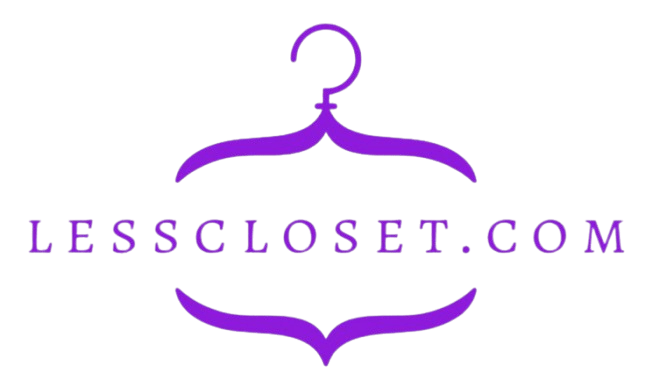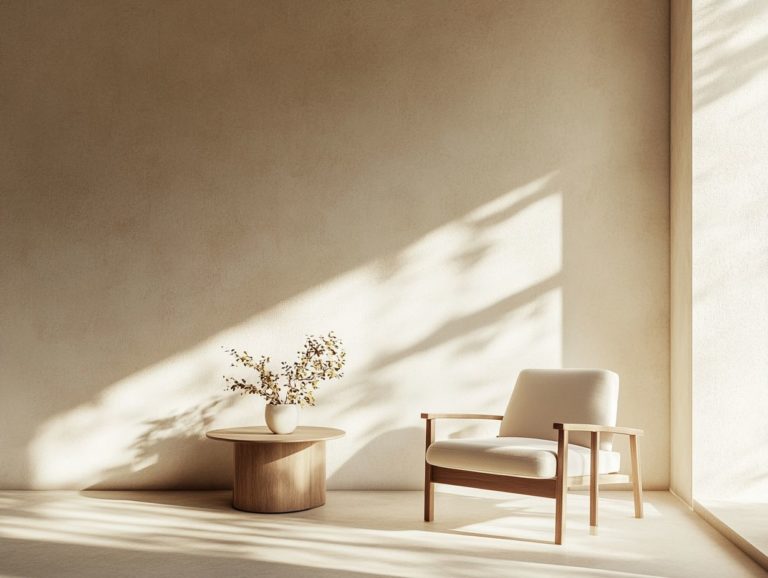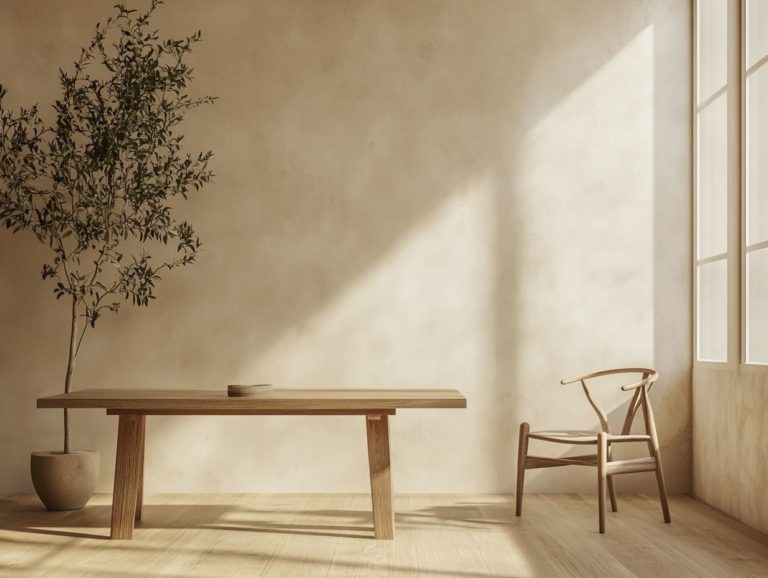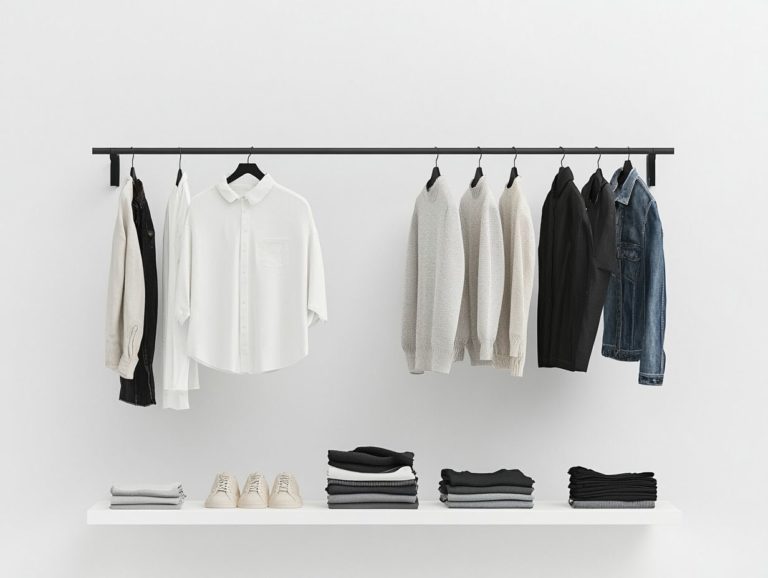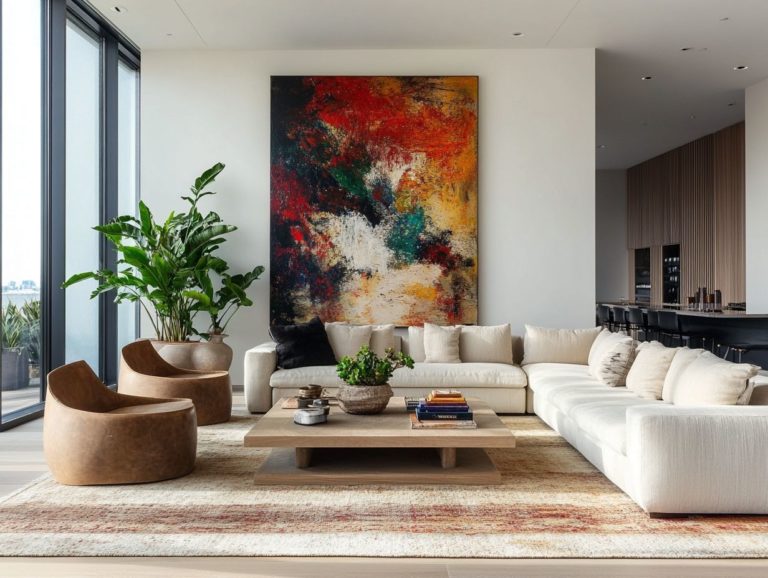What are Common Misconceptions About Minimalism?
Minimalism is frequently misinterpreted and often seen as an extreme lifestyle choice or a complete rejection of possessions. This contributes to various misconceptions about its true nature.
In truth, it s a nuanced philosophy focused on intentional living and prioritizing what genuinely matters. This exploration dives into the essence of minimalism, dispelling common myths while examining its effects on your material needs, mental well-being, and the environment!
By grasping these fundamental aspects, you ll discover how minimalism can empower you to lead a more fulfilling life!
Contents
Key Takeaways:
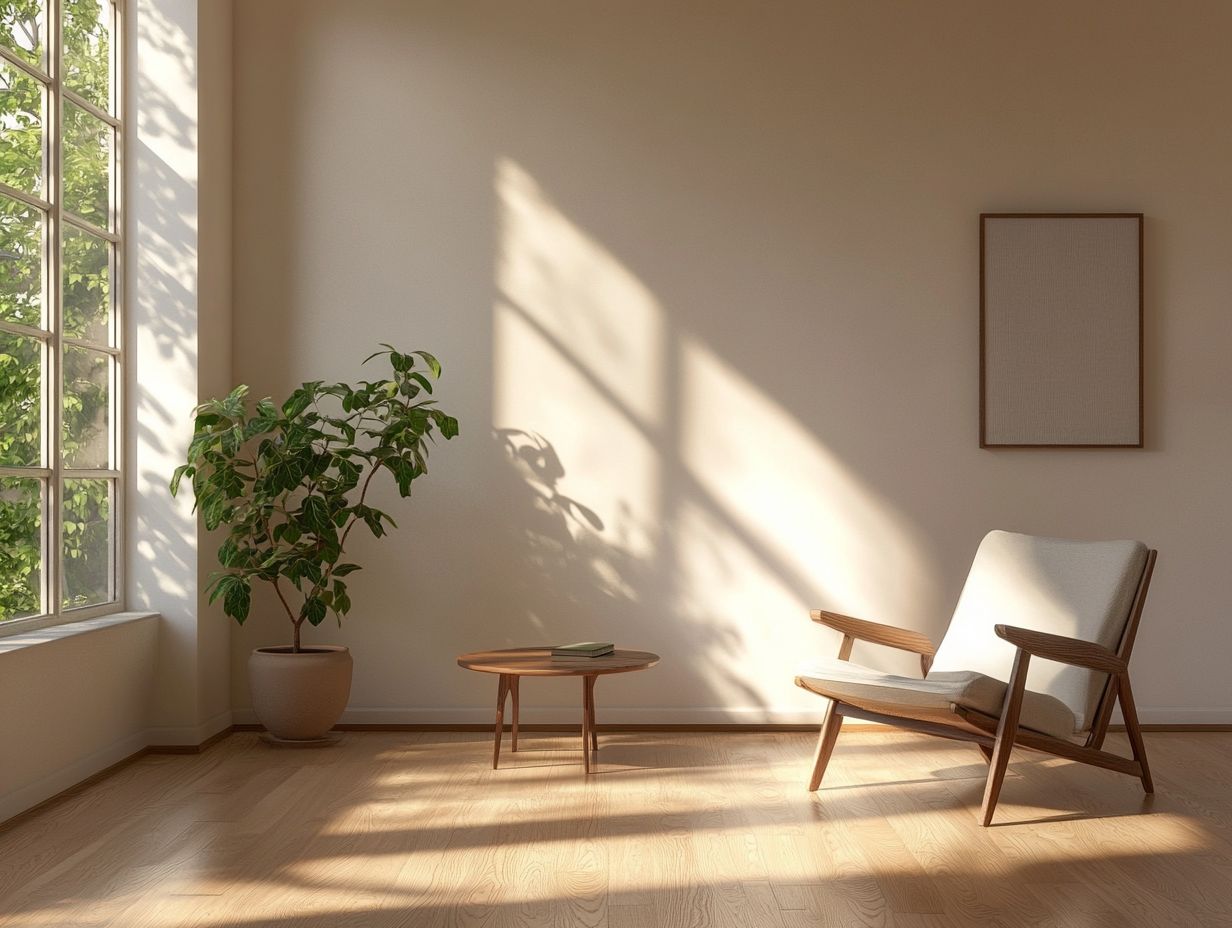
- Minimalism is not just about having fewer physical possessions; it s also about simplifying your life and prioritizing what truly matters to you.
- Contrary to popular belief, minimalism does not mean living in an empty white room. It’s about intentional and purposeful design, not deprivation.
- Adopting a minimalist lifestyle can positively affect both mental and environmental well-being, promoting clarity, contentment, and sustainability through mindful consumption.
Defining Minimalism
Influential thinkers like Marcus Aurelius and Confucius have explored themes similar to those of modern minimalism. They emphasize the value of simplicity and prioritizing values.
Minimalism transcends mere design philosophy; it embodies a transformative lifestyle choice. It invites you to choose carefully over consumerism. By owning less, you open the door to a fuller life, cultivating space for joy and meaning. However, it’s important to be aware of the challenges of minimalist living as you embark on this journey.
This minimalist journey demands that you make conscious choices to shed excess. Concentrate on quality possessions that resonate with your values. Ultimately, it leads to a simpler yet profoundly richer existence.
Understanding the Concept and Lifestyle
Understanding the concept of minimalism requires recognizing its roots in choosing carefully. The focus shifts to simplicity and quality rather than quantity in your life.
This approach invites you to declutter not just your physical space but also your emotional attachments to material possessions. It promotes a lifestyle that values experiences and relationships over mere accumulation.
The origins of this lifestyle can be traced back to various philosophical movements that stress the importance of living with purpose. By shedding excess, you often find that you cultivate deeper connections to what truly matters. This leads to a more meaningful and fulfilling existence.
Reducing distractions through minimalism enhances your clarity and mindfulness. This ultimately allows for greater emotional well-being and a deeper appreciation for the present moment as you embark on this minimalist journey. To avoid pitfalls along the way, be aware of common mistakes in minimalist fashion.
Common Misconceptions About Minimalism
You might find that many people have misconceptions about minimalism, often perceiving it as a restrictive lifestyle fixated solely on owning as little as possible. However, this perspective overlooks the deeper principles of minimalism, which are centered around fostering happiness and cultivating a more meaningful life.
Dispelling Myths and Clarifying Misunderstandings
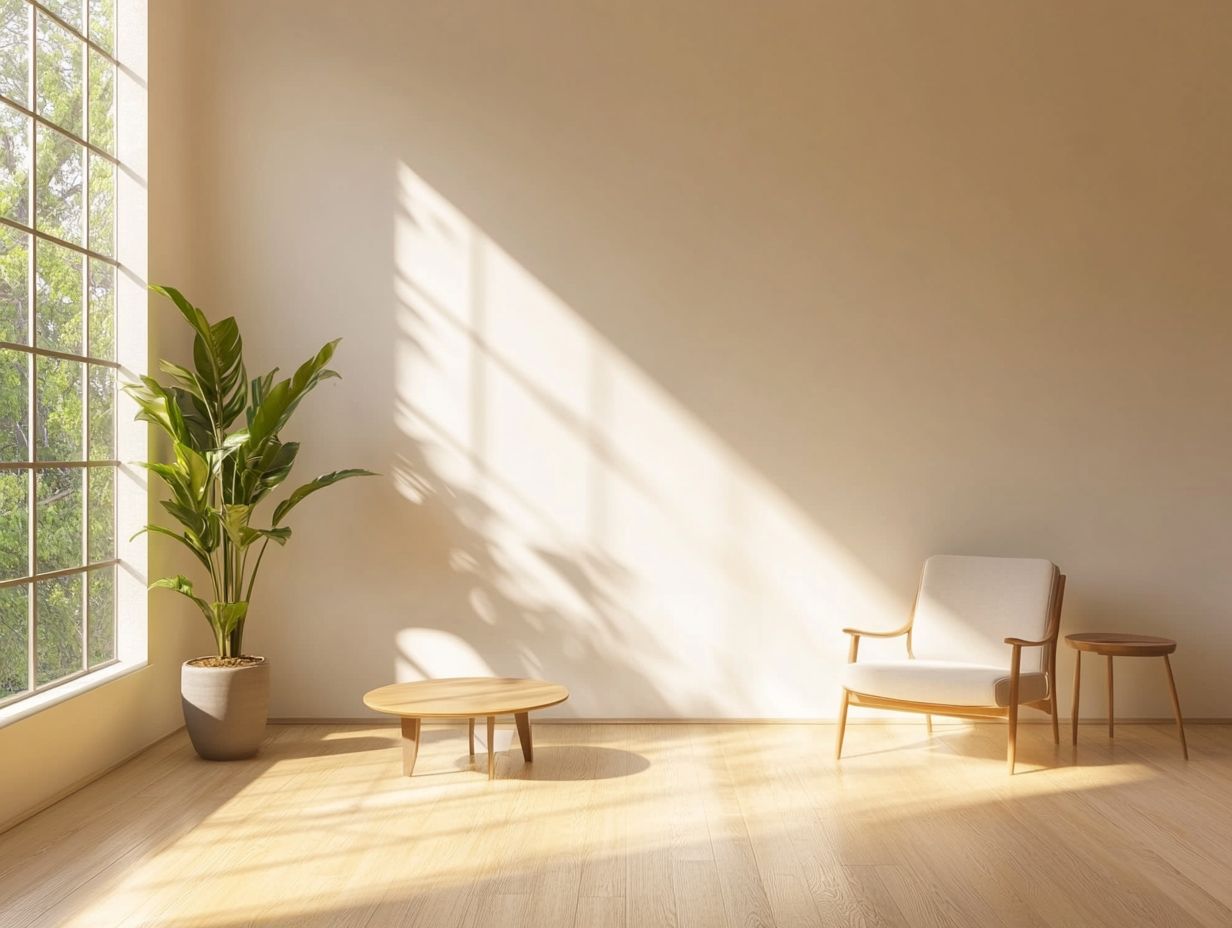
Dispelling the myths surrounding minimalism is essential for anyone considering this lifestyle. Misunderstandings can easily lead to a skewed perception of what it truly means to embrace minimalism.
You might often hear that minimalism promotes deprivation, but that couldn’t be further from the truth. At its core, minimalism emphasizes making intentional choices about the belongings you keep and cherish. This philosophy encourages you to focus on high-quality items that serve a purpose and bring you joy, rather than accumulating unnecessary clutter. To learn more about this approach, check out what a minimalist lifestyle is.
Influential figures like Marie Kondo champion this mindset, inviting you to hold each item and ask whether it sparks joy. Likewise, Joshua Fields Millburn and Ryan Nicodemus of The Minimalists emphasize that achieving a meaningful life often requires you to consciously curate your possessions. This approach fosters an environment that nurtures well-being and enhances productivity.
Minimalism and Material Possessions
Minimalism fundamentally challenges your relationship with material possessions. It urges you to distinguish between your needs and wants. This lifestyle advocates for owning less, which allows you to live more freely while embracing simplicity and clarity in your life.
Separating Needs from Wants
Learning to separate needs from wants is essential in adopting a minimalist lifestyle. You will prioritize intentional choices, focusing on acquiring quality possessions that truly enhance your life.
Reflecting on what is genuinely essential versus merely desirable helps cultivate better decision-making habits, leading to financial stability. Regularly evaluate your possessions and ask yourself if each item serves a purpose or brings you joy.
Establishing criteria for purchases such as necessity, utility, and emotional value can significantly assist in this discernment process. Embracing this mindset reduces clutter and fosters a deeper appreciation for what you already have, guiding you toward a simpler, more fulfilling life.
Through these intentional choices, you ll move closer to achieving financial independence and improving your overall well-being.
Impact of Minimalism on Mental Health
The impact of minimalism on mental health is profound. By adopting a minimalist lifestyle, you can significantly lower stress and enhance your overall well-being.
This approach helps eliminate unnecessary clutter, creating an environment filled with positivity that nurtures your mind and spirit.
Reducing Stress and Improving Well-being
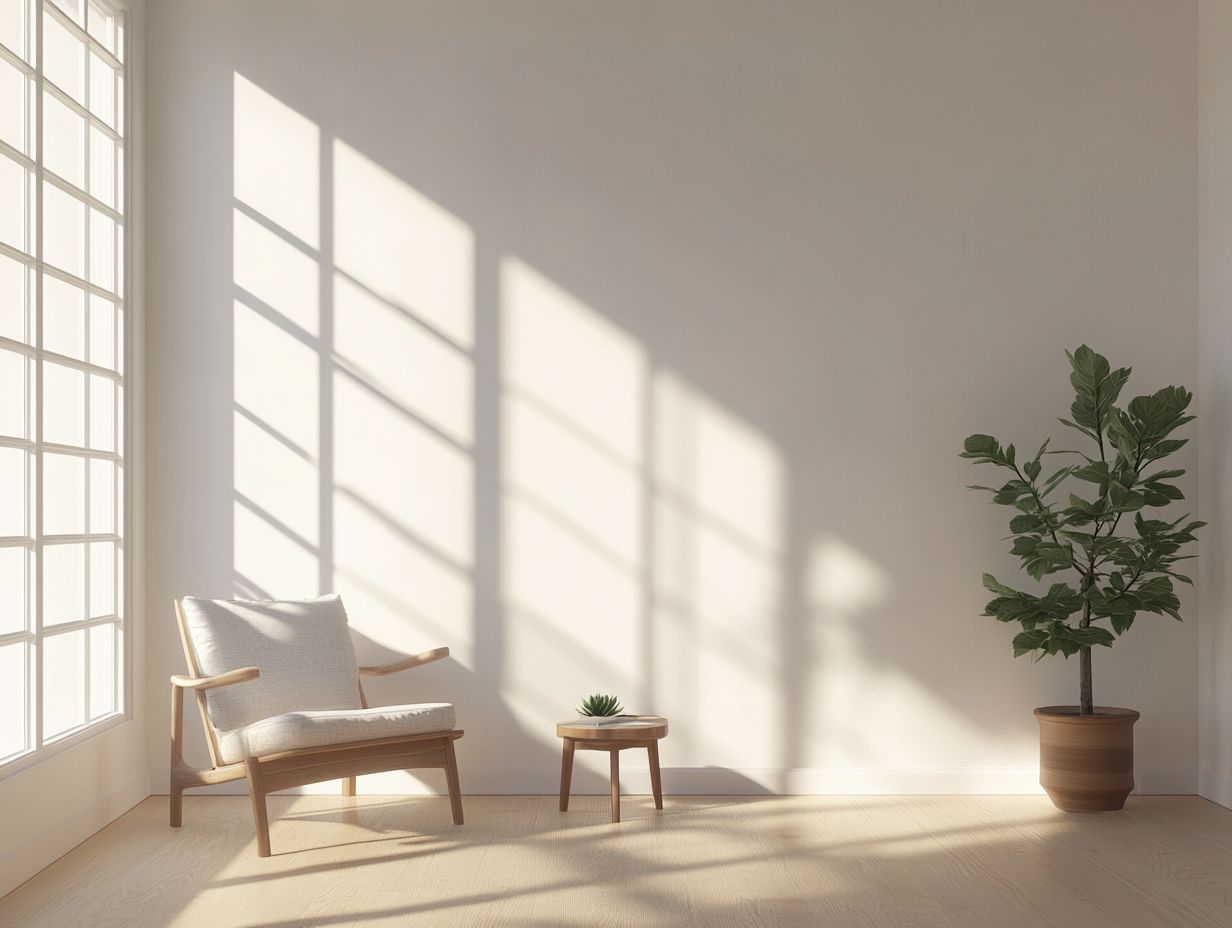
Focusing on reducing stress and enhancing well-being invites you to embark on a transformative journey. This journey helps you detach from emotional attachments to your belongings.
As you declutter, you may experience a profound reassessment of your personal values and priorities. This process can lead to a newfound sense of clarity and calm, allowing for fresh experiences and connections.
Imagine Sarah, who transformed her home into a tranquil haven after embracing minimalism. This change significantly nurtured her mental health.
Practicing gratitude for what truly matters cultivates a growth mindset, enhancing your resilience and leading to a more fulfilling life. As you let go of the burden of possessions, you unlock the potential for self-discovery and deeper relationships.
Minimalism and Sustainability
Minimalism closely intertwines with sustainability. It encourages you to adopt a greener lifestyle. By practicing mindful consumption, you make careful choices that prioritize quality over the temptations of consumerism.
How Minimalism Can Contribute to a Greener Lifestyle
Minimalism can be a powerful ally on your journey to a greener lifestyle. It urges you to embrace ethical consumption and prioritize quality over quantity in your choices.
By consciously selecting sustainably sourced and produced products, you can significantly cut waste and promote environmentally friendly practices. This shift not only declutters your life but also enhances your appreciation for the value of each item you own, leading to more thoughtful purchasing decisions.
Consider opting for locally made goods or second-hand items. This not only supports your community but also lessens the carbon footprint associated with transport and mass production. Embracing minimalism fosters a mindset that values experiences over possessions, encouraging investments in moments that enrich both your life and the planet, such as participating in community clean-up efforts or exploring the great outdoors.
Frequently Asked Questions
Ready to simplify your life? Embrace minimalism today!
What are Common Misconceptions About Minimalism?
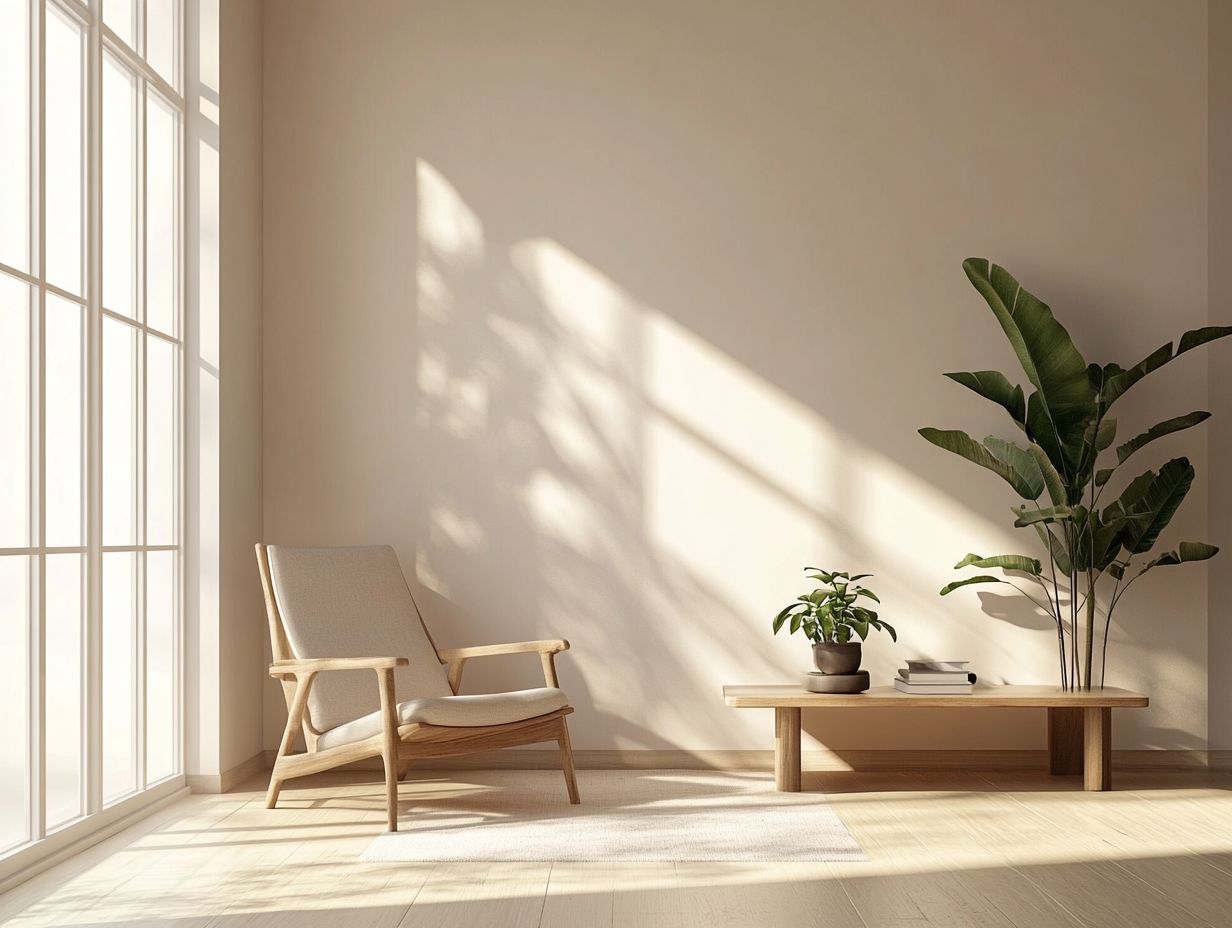
Curious about minimalism? Let s clear up some common misconceptions!
One common misconception is that minimalism means living with as little as possible. In reality, it s about thoughtfully choosing what matters most to you.
What are some myths about minimalism?
Some think minimalism is only for those who can afford large, empty spaces. You can practice minimalism in any living situation, no matter your income.
Do minimalists have to get rid of all their possessions?
No, minimalism isn’t about tossing everything out. It s about keeping what aligns with your values and goals.
Is minimalism just a trend?
While minimalism has gained popularity recently, it has been around for centuries. It s a timeless way of living, not just a passing fad.
Will minimalism make me miss out on experiences?
People often believe minimalism means sacrificing experiences. By focusing on what truly matters, you can actually prioritize meaningful experiences!
Is minimalist living only for single people, couples, or families?
No, anyone can use minimalism, regardless of their living situation. Many families find that minimalism helps create a more peaceful and organized home life.
